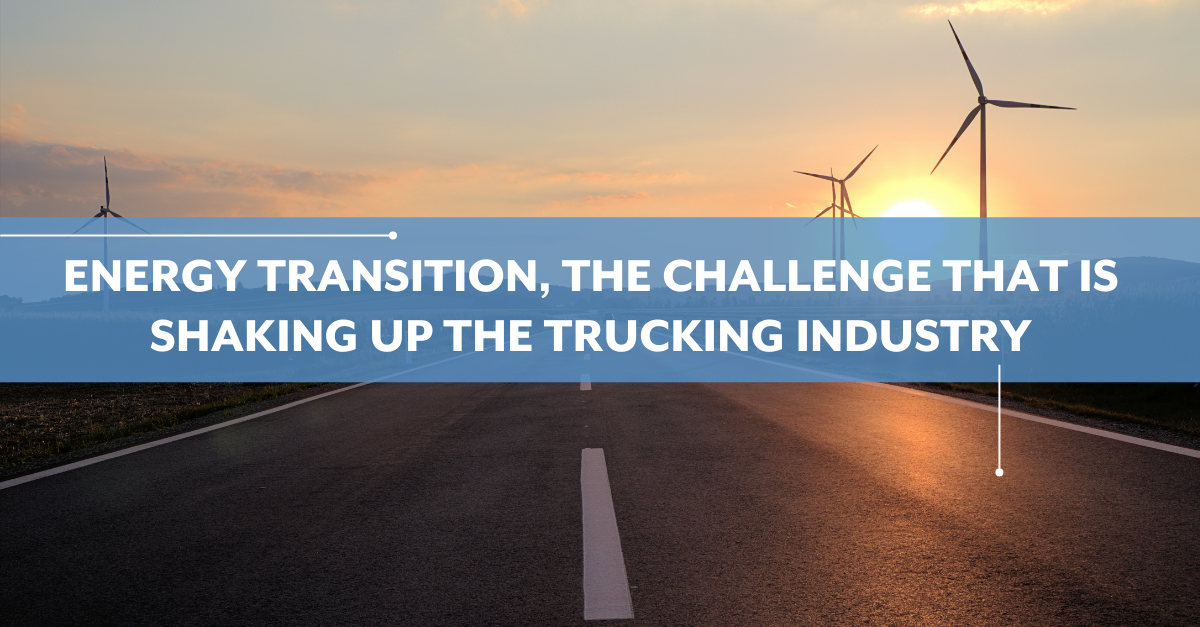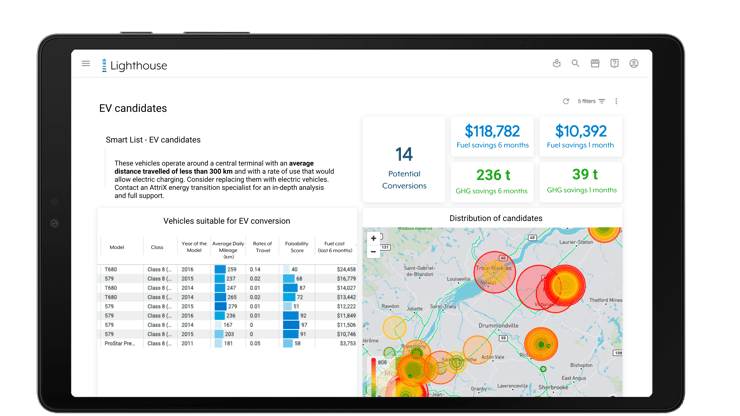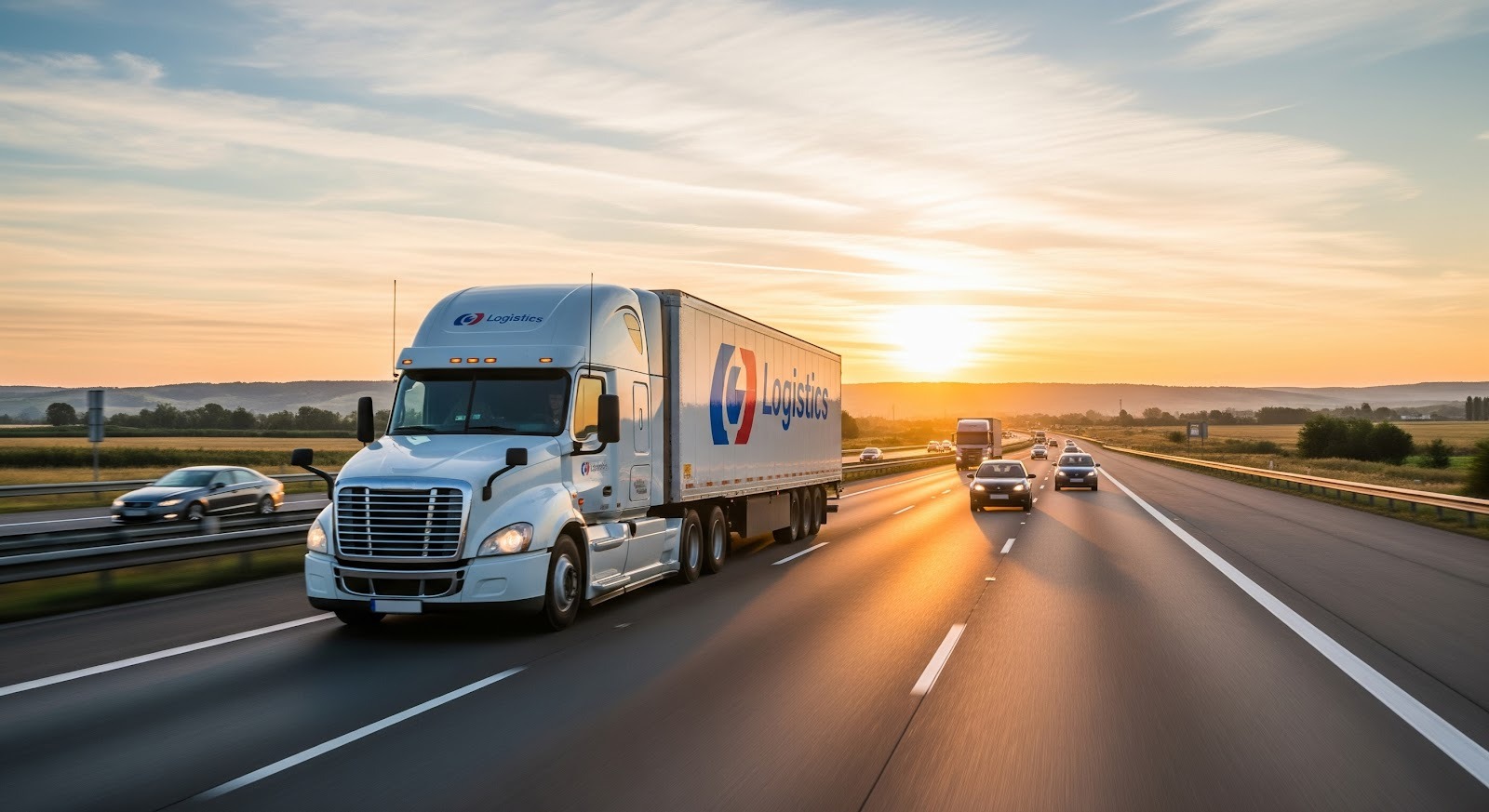Commercial Fleet Management: Strategies, Tools & Tips
Commercial fleet management plays a vital role in keeping businesses running smoothly, especially in industries like transportation, logistics, and...
Keep an eye on the road
Simplify your driver's routine
For efficient decision making
Ensure the compliance of your fleet
Simplify the daily life of your drivers
Maximize the value of your data
Unparalleled monitoring of your assets
The friendly competition that pays off
Planning powered by data
Exceed your customers' expectations
Provide better service to your users
Maximize the satisfaction of your citizens
Simplify your daily life on the construction site
Facilitate the electrification of your fleet
Our experts meet your needs
Easily meet the standards
Improve the safety of your drivers
Protect your data and your fleet
2 min read
![]() Anna-Kim Dion
Nov 29, 2022 2:44:17 PM
Anna-Kim Dion
Nov 29, 2022 2:44:17 PM

Mont-Saint-hilaire, QC, April 14th 2022- The U.S. Department of Energy recently released a report containing a vehicle cost analysis for zero-emission medium and heavy-duty trucks. According to the DOE, Department of energy, total cost parity, between operating zero-emission vehicles and conventional heavy-duty diesel vehicles, is expected to be achieved by 2035. This prediction is based on the steady pace of progress in vehicle electrification technologies observed in recent years. Until total operating parity between EVs and combustion vehicles is achieved, subsidies are available to help reduce or eliminate the gap.
Of course, the trucking industry is not homogeneous, so it is expected that certain categories of smaller trucks with more favorable missions will achieve total cost parity much sooner. Nevertheless, to achieve parity and invest in its competitiveness in the medium term, every trucking company needs to start going green today. In order to motivate this important energy transition in addition to the environmental crisis, let's remember the following advantages of electric vehicle fleets:
1- Reduction of the total cost of ownership in the medium term
2- Drastic reduction in GHG emissions
3- Better image for your company
4- Happy drivers thanks to exceptionally quiet engines
5- Pleasant and agile driving with one pedal
6- Instant acceleration and strong torque
7- Reduction and stabilization of energy costs
It is important to note that the conversion of your fleet to electric vehicles will increasingly make the difference when awarding a new contract and will greatly impact the profitability of your initial investment. In addition, given the current labour shortage in the trucking industry, the appeal of driving an EV is significant in terms of recruitment and retention of drivers. It is therefore essential to begin analyzing fleet operations to identify combustion vehicles that may meet the criteria for replacement with an electric equivalent today and to prepare for the future electrification of others.
 With this in mind, AttriX's visionary team has developed the unique and exclusive Lighthouse platform that facilitates the energy transition, allowing a simplified and productive transition to a more eco-friendly future. Among other things, this solution identifies combustion vehicles in your fleet that meet the criteria for conversion to an electric equivalent. It also recognizes the GHG reduction opportunities and the profits your company can realize by making these changes. The benefits of using Lighthouse also extend to companies who want to reduce their transportation costs. It allows detailed analysis of energy consumption and efficiency over time. In this way, you can monitor whether your fleet's consumption and your key performance indicators are evolving successfully. Our platform also allows you to plan refueling stops at gas stations that offer the best price for fuel. With better management, you will achieve a reduction in both operational costs and GHG emissions.
With this in mind, AttriX's visionary team has developed the unique and exclusive Lighthouse platform that facilitates the energy transition, allowing a simplified and productive transition to a more eco-friendly future. Among other things, this solution identifies combustion vehicles in your fleet that meet the criteria for conversion to an electric equivalent. It also recognizes the GHG reduction opportunities and the profits your company can realize by making these changes. The benefits of using Lighthouse also extend to companies who want to reduce their transportation costs. It allows detailed analysis of energy consumption and efficiency over time. In this way, you can monitor whether your fleet's consumption and your key performance indicators are evolving successfully. Our platform also allows you to plan refueling stops at gas stations that offer the best price for fuel. With better management, you will achieve a reduction in both operational costs and GHG emissions.
Expert support is also highly recommended to initiate the electrification of your fleet. AttriX offers the assistance of energy transition specialists who are familiar with all the subsidies offered in connection with electric conversion, as well as an exclusive support plan to guide you through each step of your green transition. Thanks to our step-by-step methodology and the valuable advice of our specialists, you will efficiently reach your goals. Going green and eco-responsible is the new major issue facing the trucking industry and our team will help you meet the challenges.
It is everyone's responsibility to start an energy transition as soon as possible and with the right resources, it can be done smoothly and benefit everyone. Let's remember that in 2017, road transportation in Quebec alone accounted for 79.6% of GHG emissions from the transportation sector, and 34.5% of total emissions. The Intergovernmental Panel on Climate Change (IPCC) estimates that, in order to limit global warming to 1.5°C, we must reduce our GHG emissions by 43% by 2030. Time is running out and every member of our industry must be part of the collective effort in hopes of avoiding the disasters that global warming above 1.5℃ would cause. Everyone's future depends on it.

Commercial fleet management plays a vital role in keeping businesses running smoothly, especially in industries like transportation, logistics, and...

In fleet management, fleet compliance services play a much bigger role than just checking a box. They’re about keeping your drivers safe, your...

Trucking has always come with its fair share of challenges, from road safety and liability issues to managing fleet efficiency. As the industry...